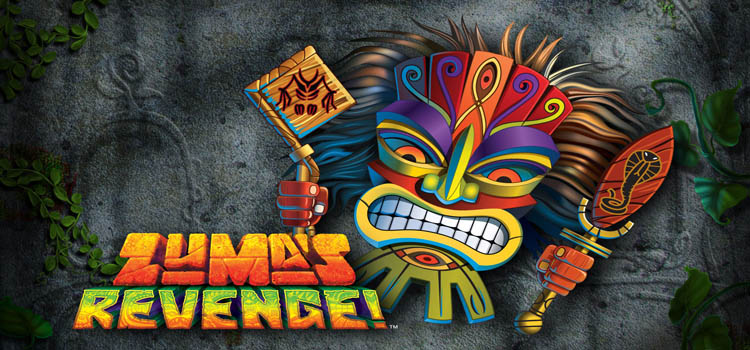
thing sits in the centre of the board, spitting out balls trying to hit same-coloured spheres and make them vanish. If you don't know Zuma, here's how it goes: a steady stream of coloured balls are running down winding grooves towards a goal you must stop them from reaching. If you're boycotting EA or Origin and want to rant and rave about that towards me, please imagine doing that to my face in a pub and the look I'd have as I poured your own pint over your head. If you have an Origin account (and probably if you don't too), it's perhaps worth downloading for free as the latest freebie in the scheme EA chose not to call "Ahhh g'wan, install Origin, it's really nice, honest." Starting as a web-based provider of video games, PopCap now finds itself on consoles and smartphones competing with a lot of the derivative games of gaming concepts the company popularized.Zuma's Revenge may be a lesser sequel to PopCap's fine ball-blasting action-puzzler Zuma (it's essentially a colourful Resident Evil 4 without player movement, yeah?), but it's still some pretty fun froggy action. Known for its high-quality games in this space, PopCap Games is an interesting tale by itself.

Other highlights include the vibrant graphics and crisp, clear sound and music that the game had. Released for everything from Nintendo’s DS handheld to PC’s in 2011, Zuma’s Revenge! had a largely warm reception in the critical press.Ī lot of the praise centered around the game’s expansion of the first game’s core concepts while avoiding making anything needlessly complicated. Zuma’s Revenge! is truly a continuation of the first game and that makes it pretty awesome all on its own. There aren’t any serious gameplay changes in this sequel nor is anything thrown into the mix just because.

It has since made an appearance on almost every format much like its counterpart Bookworm.Īnd that’s because it is basically just more of the same but bigger and better – just as a sequel should be. Similar to Tetris, it was spread virally via PCs but, this time, instead of a diskette, the web served as the access point for the game.

Zuma is a matching-tile puzzle game involving a snaking board but, overall, the same mechanics as the vertically-stacked variants that make up the majority of this genre.Ĭoming out before Puzzle Quest, Zuma introduced a lot of people to the matching-tile puzzler and became a bit of a sensation in its own right just like Tetris. This was probably the dilemma that faced PopCap Games when they sat down to come up with a sequel to Zuma, one of the early 2000s most iconic games one of the biggest web-based games of that era as well.


 0 kommentar(er)
0 kommentar(er)
